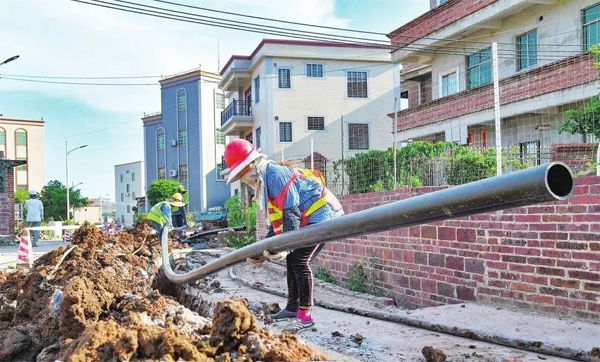Maoming water supply project to benefit 1.6m people
- (chinadaily.com.cn)
- Updated: 2021-10-22
Maoming has been promoting rural centralized water supply as a major livelihood project. It is expected that by the end of this year, it will benefit 443,200 families and 1.6 million people.
Previously, the water for living in Jiangbian village in Maoming came from Jianjiang River, which is contaminated. However, people in the village have clean water now.
"Finally, I have access to tap water now. It is convenient and safe," said Li Xiufang, a Jiangbian village native.
The mountain roads to Mudi and Jiaotou villages in Dianbai district are rugged and steep. "Such environments are a great challenge for laying pipelines," said Chen Qiang, a local pipe network construction manager.

Villagers lay pipe in Maoming. [Photo by Qiu Lihe/Maoming Daily]
"The more difficult the conditions are, the more we must speed up work to complete the tasks on time," added Chen.
In order to encourage people to install water meters, Dianbai has introduced a subsidy policy so that each household can get a subsidy of 1,000 yuan ($156.4) for the installation of a water meter.
In addition, Binhai New Area, Xinyi, and Huazhou in Maoming have employed local villagers to participate in this project.
"Villagers can work near their homes," said the project leader of Maoming Binhai Development Group, which undertakes the rural centralized water supply project in the 247 natural villages in Binhai New Area.
Up to now, a total of 673 construction teams have employed 17,072 local villagers, and the rural centralized water supply network in Maoming has covered a population of over 1.3 million, an increase of 503,700 people.
The initial investment for the rural centralized water supply project is estimated to exceed 3.6 billion yuan, and about 1.75 billion yuan has been put in place.


